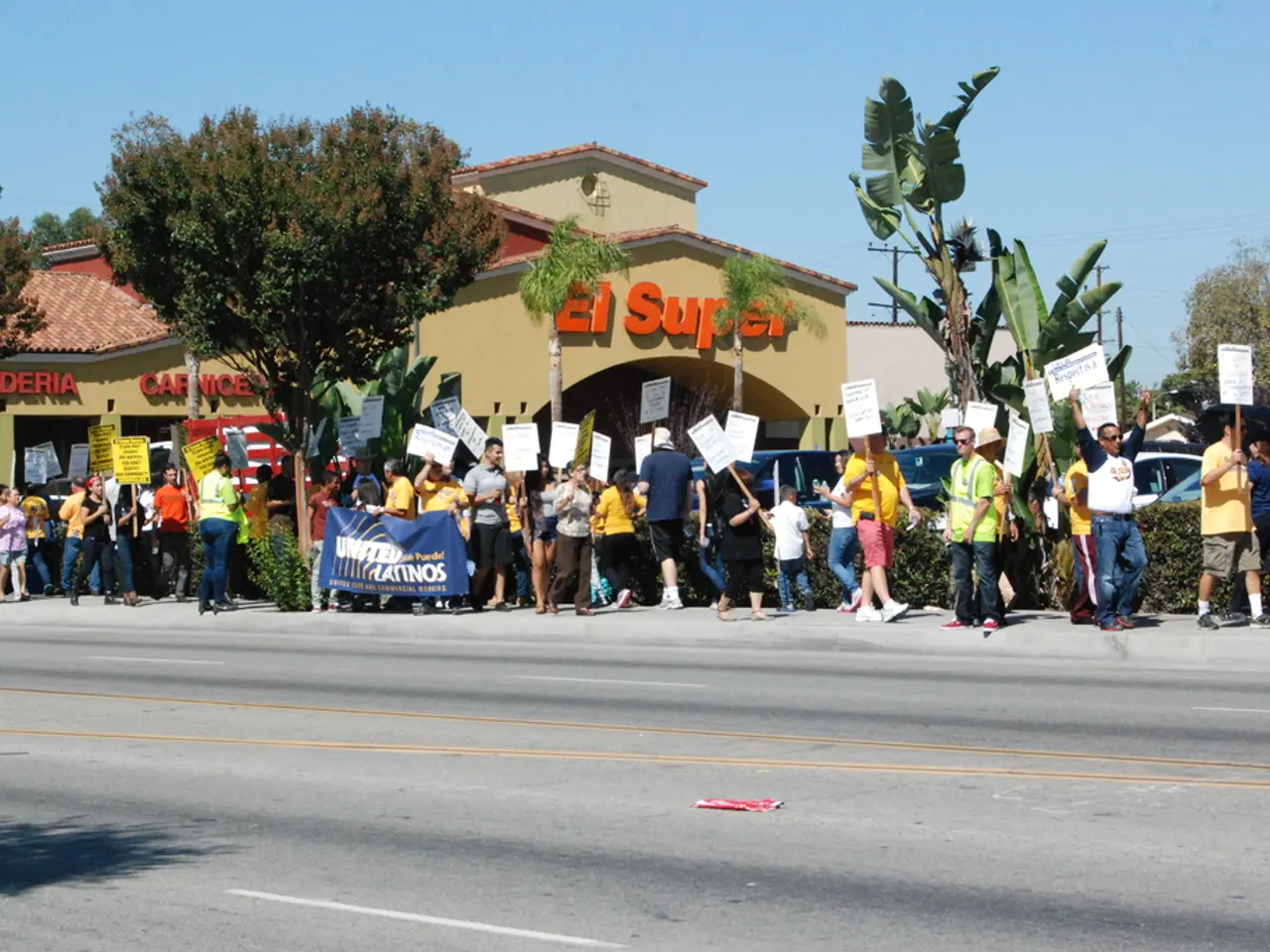Federal records show discrepancies between the FEMA leader's statements about the Texas flood response and the actual records.
In the aftermath of the devastating flash floods that hit Texas in July 2025, thousands of disaster survivors found themselves in a predicament. The Department of Homeland Security (DHS) had let the funding for FEMA call centers lapse, leading to a massive disruption in assistance for those in need.
During testimony before a House subcommittee on July 23, FEMA's acting administrator, David Richardson, was asked about the agency's staffing of call centers. Richardson stated that when there was a spike in calls, FEMA was there to answer the calls, and the majority of the calls were answered at the call centers. However, this was contradicted by internal records showing widespread non-response.
On the day after the July 4 floods, the call center funding lapsed due to DHS not renewing the contract for call center staff. This resulted in the mass layoff of hundreds of contractors, causing nearly 40,000 calls to go unanswered over five days. The delay in renewing funding was partly due to a new DHS policy requiring Homeland Security Secretary Kristi Noem to personally approve all expenses over $100,000, creating an administrative bottleneck.
On July 7, the first weekday after the disaster, there was a surge in the number of callers to the FEMA assistance hotline for disaster survivors. However, only 10% of the more than 15,000 calls that FEMA received that day were answered. Survivors were left waiting "over 90 minutes" to get through to FEMA.
Two of the four private vendors who staff FEMA call centers, Maximus and General Dynamics Information Technology, referred NPR's questions to FEMA. The last vendor did not respond to questions from NPR. As of Aug. 6, it did not appear that DHS had approved any more money for call center funding, according to the public federal procurement database.
The funding lapse was not a mere technical oversight but reflected a failure of leadership and administrative procedures within DHS and FEMA, compounded by the politicization of FEMA's role. The call center funding contracts cost millions monthly and are typically renewed before expiration during active disasters, but this process was disrupted in 2025 due to the new approval requirements and delays.
Lesley Briones, a county commissioner in Harris County, Texas, expressed frustration with FEMA's call center performance and blamed cuts to the agency. Christopher Byrne, a former senior contracting officer at the U.S. General Services Administration, pointed out that while the umbrella contract with the vendors did not lapse, the funding did, causing the call centers to stop working during the flood response. The 30-day clock for call center funding creates a lot of work for FEMA staff, according to Byrne.
Rep. Laura Friedman, D-Calif., asked about the report in The New York Times that showed FEMA call centers had been inadequately staffed in the week after the Texas floods. The funding for all the vendors was approved on July 10, but the delay in implementation led to the lapse and the subsequent chaos.
As the call center funding is set to lapse again on Aug. 8, it is crucial for DHS and FEMA to address these issues to ensure that disaster survivors receive the assistance they need in a timely manner.
[1] New York Times, "FEMA Call Centers Were Inadequately Staffed After Texas Floods, Report Says" [2] NPR, "Why FEMA's Call Centers Failed During The Texas Floods" [3] Politico, "FEMA's Call Center Failure: A Tale of Mismanagement and Politics" [4] Washington Post, "FEMA's Call Center Failure During Texas Floods: A Systemic Failure or a Technical Glitch?"
- In the political landscape, there's increasing scrutiny towards FEMA's call center performance, particularly in the aftermath of the Texas floods, with reports suggesting inadequate staffing and subsequent chaos, as detailed in articles from The New York Times, NPR, Politico, and The Washington Post.
- The failure of FEMA's call centers during the Texas floods wasn't solely a technical issue but a complex combination of mismanagement, administrative procedures, and politicization, as explored in articles such as "FEMA's Call Center Failure: A Tale of Mismanagement and Politics" on Politico.
- As the government grapples with policy-and-legislation surrounding disaster response, the upcoming lapse of FEMA call center funding on August 8 raises concerns about the general-news of disaster survivors potentially being left without assistance, echoing the chaos seen during the Texas floods and highlighted in reports like "Why FEMA's Call Centers Failed During The Texas Floods" on NPR.








